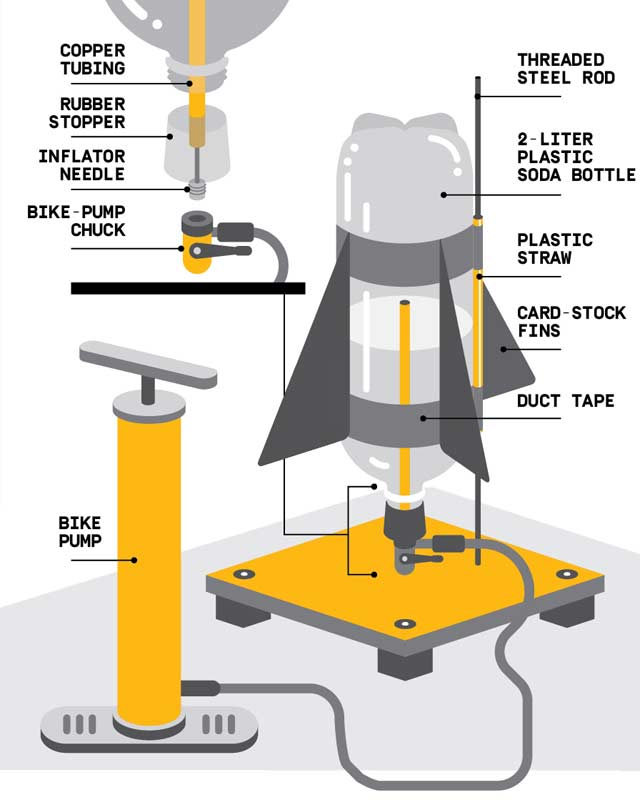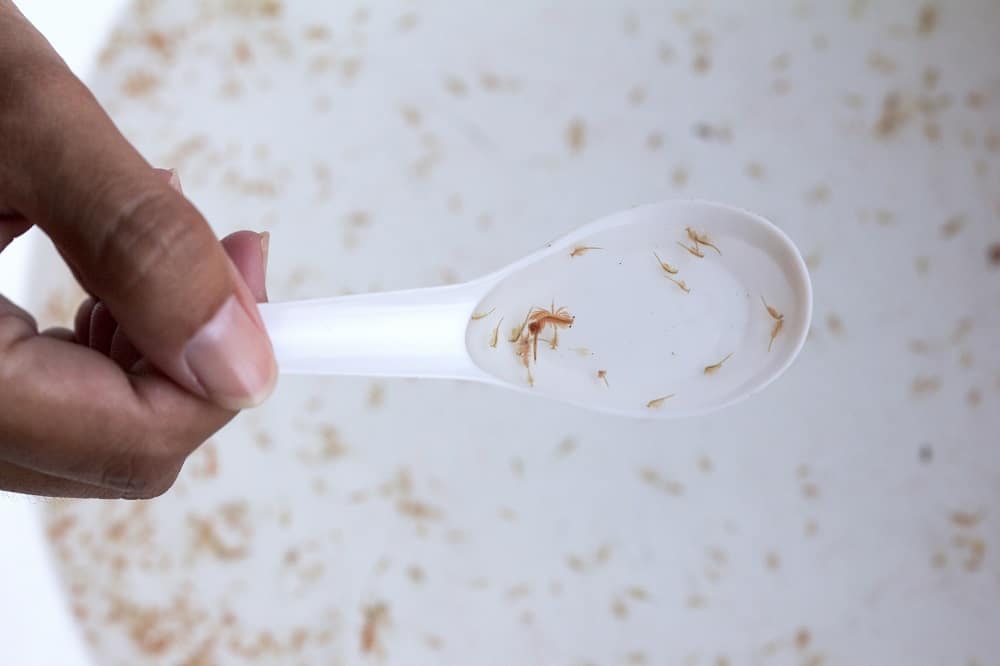Does titanium corrode
Does Titanium Corrode. Therefore titanium has excellent corrosion resistance in oxidizing and neutral media. Titanium is very reactive with oxygen and forms oxides instantaneously that are adherent and generally form a protective surface that may prevent or retard further corr. Titanium does not suffer microbial induced corrosion mic and although a very small degree of biofouling can be present no corrosion is found under marine organisms. Whenever fresh titanium is exposed to the atmosphere or to any environment containing oxygen it immediately acquires a thin tenacious film of oxide.
 Why Does Titanium Have Excellent Corrosion Resistance New Project News Baoji Chuangxin Metal Materials Co Ltd Cxmet From cxmetti.com
Why Does Titanium Have Excellent Corrosion Resistance New Project News Baoji Chuangxin Metal Materials Co Ltd Cxmet From cxmetti.com
Titanium alloys like other metals are subject to corrosion in certain environments. Titanium has three outstanding characteristics which account for many of its applications in corrosive services such as. Titanium is not resistant to relatively pure sulfuric and hydrochloric acids but does a good job in many of these acids when they are. The corrosion resistance of titanium is well documented. Saline environments coastal areas area exposed to de icing salt etc especially but also manufactur. Titanium has no pitting corrosion in most salt solutions but pitting corrosion is prone to occur in non aqueous solutions and boiling high concentration chloride solutions.
Titanium is not resistant to relatively pure sulfuric and hydrochloric acids but does a good job in many of these acids when they are.
Saline environments coastal areas area exposed to de icing salt etc especially but also manufactur. Titanium has no pitting corrosion in most salt solutions but pitting corrosion is prone to occur in non aqueous solutions and boiling high concentration chloride solutions. The halogen ions in the solution corrode the passive film titanium oxide on the titanium surface and then pitting corrosion occurs when the halogen ions diffuse into the interior of titanium. Although titanium is generally resistance to corrosion in the atmosphere titanium is subject to corrosion in certain environments. Salts such as fecl 3 and cucl 2 which tend to pit most other metals and alloys actually inhibit corrosion of titanium. Seawater and other chloride salt solutions.
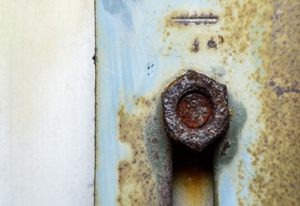 Source: sputtertargets.net
Source: sputtertargets.net
Whenever fresh titanium is exposed to the atmosphere or to any environment containing oxygen it immediately acquires a thin tenacious film of oxide. Seawater and other chloride salt solutions. Therefore titanium has excellent corrosion resistance in oxidizing and neutral media. The primary forms of corrosion that have been observed on these alloys include general corrosion crevice corrosion anodic pitting hydrogen damage and stress corrosion cracking. Titanium does not rust corrosion is an electrochemical process that slowly destroys most metals over time.
 Source: perfectblades.com
Source: perfectblades.com
Therefore titanium has excellent corrosion resistance in oxidizing and neutral media. Seawater and other chloride salt solutions. Salts such as fecl 3 and cucl 2 which tend to pit most other metals and alloys actually inhibit corrosion of titanium. Therefore titanium has excellent corrosion resistance in oxidizing and neutral media. Due to the great passivation performance of titanium in many cases when it comes in contact with dissimilar metals it does not accelerate the corrosion but may accelerate the corrosion of dissimilar metals.
Source: quora.com
Titanium alloys like other metals are subject to corrosion in certain environments. Due to the great passivation performance of titanium in many cases when it comes in contact with dissimilar metals it does not accelerate the corrosion but may accelerate the corrosion of dissimilar metals. Titanium is susceptible to corrosion in some environments despite its relative stability. Saline environments coastal areas area exposed to de icing salt etc especially but also manufactur. Titanium is very reactive with oxygen and forms oxides instantaneously that are adherent and generally form a protective surface that may prevent or retard further corr.
 Source: natori-mnf.co.jp
Source: natori-mnf.co.jp
When metals are exposed to oxygen either in the air or underwater the oxygen snatches up electrons creating what we call metal oxides. It resists corrosion better than other steels perhaps but it will still corrode especially in certain environments. Titanium is not resistant to relatively pure sulfuric and hydrochloric acids but does a good job in many of these acids when they are. Hypochlorite and wet chlorine. Due to the great passivation performance of titanium in many cases when it comes in contact with dissimilar metals it does not accelerate the corrosion but may accelerate the corrosion of dissimilar metals.
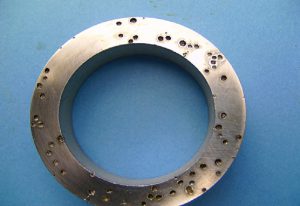 Source: sputtertargets.net
Source: sputtertargets.net
Therefore titanium has excellent corrosion resistance in oxidizing and neutral media. It resists corrosion better than other steels perhaps but it will still corrode especially in certain environments. Hypochlorite and wet chlorine. Please enable javascript and refresh the page to continue. The corrosion resistance of titanium is well documented.
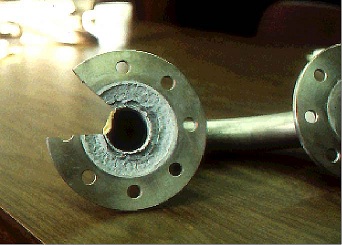 Source: titaniumexposed.com
Source: titaniumexposed.com
The primary forms of corrosion that have been observed on these alloys include general corrosion crevice corrosion anodic pitting hydrogen damage and stress corrosion cracking. Titanium alloys like other metals are subject to corrosion in certain environments. For example in a low concentration non. Titanium does not suffer microbial induced corrosion mic and although a very small degree of biofouling can be present no corrosion is found under marine organisms. Saline environments coastal areas area exposed to de icing salt etc especially but also manufactur.
 Source: titaniumprocessingcenter.com
Source: titaniumprocessingcenter.com
Saline environments coastal areas area exposed to de icing salt etc especially but also manufactur. For example in a low concentration non. Therefore titanium has excellent corrosion resistance in oxidizing and neutral media. The halogen ions in the solution corrode the passive film titanium oxide on the titanium surface and then pitting corrosion occurs when the halogen ions diffuse into the interior of titanium. Titanium is very reactive with oxygen and forms oxides instantaneously that are adherent and generally form a protective surface that may prevent or retard further corr.
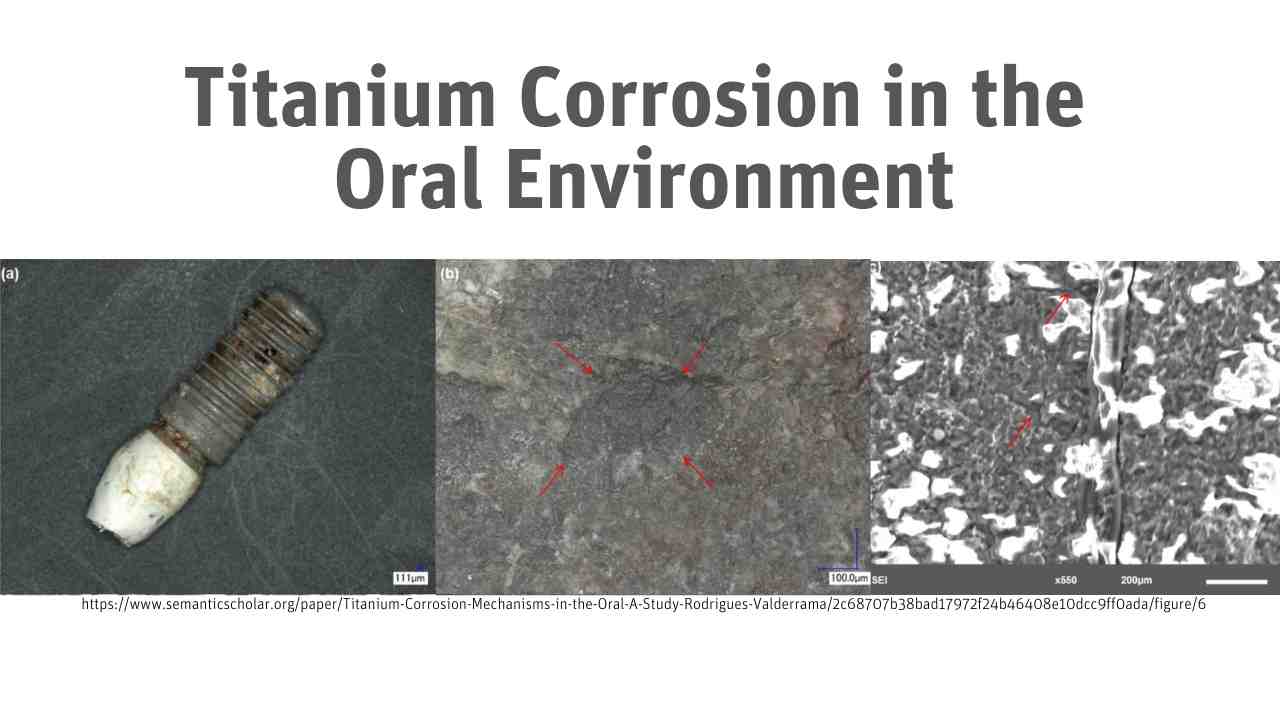 Source: emerginnova.com
Source: emerginnova.com
Due to the great passivation performance of titanium in many cases when it comes in contact with dissimilar metals it does not accelerate the corrosion but may accelerate the corrosion of dissimilar metals. Salts such as fecl 3 and cucl 2 which tend to pit most other metals and alloys actually inhibit corrosion of titanium. Titanium has no pitting corrosion in most salt solutions but pitting corrosion is prone to occur in non aqueous solutions and boiling high concentration chloride solutions. When metals are exposed to oxygen either in the air or underwater the oxygen snatches up electrons creating what we call metal oxides. Whenever fresh titanium is exposed to the atmosphere or to any environment containing oxygen it immediately acquires a thin tenacious film of oxide.
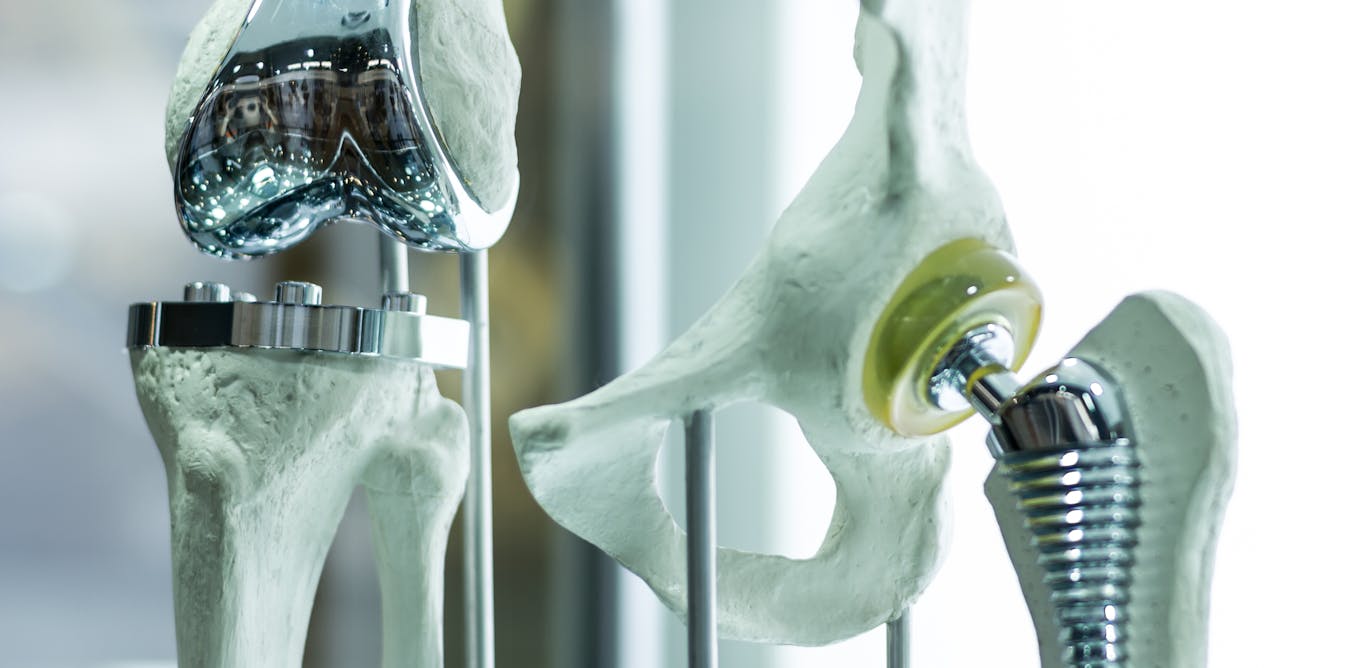 Source: theconversation.com
Source: theconversation.com
Some of these types include general galvanic and crevice corrosion as well as stress corrosion cracking anodic breakdown pitting and hydrogen embrittlement. The primary forms of corrosion that have been observed on these alloys include general corrosion crevice corrosion anodic pitting hydrogen damage and stress corrosion cracking. Whenever fresh titanium is exposed to the atmosphere or to any environment containing oxygen it immediately acquires a thin tenacious film of oxide. When metals are exposed to oxygen either in the air or underwater the oxygen snatches up electrons creating what we call metal oxides. The corrosion resistance of titanium is well documented.
 Source: corrosionpedia.com
Source: corrosionpedia.com
Titanium is susceptible to corrosion in some environments despite its relative stability. In desalination plants titanium is used in heat exchangers where the temperature is usually kept around 130 c 8 while titanium is reported to be immune to generalized corrosion up to 260 c. Titanium has three outstanding characteristics which account for many of its applications in corrosive services such as. It resists corrosion better than other steels perhaps but it will still corrode especially in certain environments. When metals are exposed to oxygen either in the air or underwater the oxygen snatches up electrons creating what we call metal oxides.
Source: en.wikipedia.org
Hypochlorite and wet chlorine. Titanium is susceptible to corrosion in some environments despite its relative stability. Titanium does not rust corrosion is an electrochemical process that slowly destroys most metals over time. For example in a low concentration non. Although titanium is generally resistance to corrosion in the atmosphere titanium is subject to corrosion in certain environments.
 Source: cxmetti.com
Source: cxmetti.com
In desalination plants titanium is used in heat exchangers where the temperature is usually kept around 130 c 8 while titanium is reported to be immune to generalized corrosion up to 260 c. Due to the great passivation performance of titanium in many cases when it comes in contact with dissimilar metals it does not accelerate the corrosion but may accelerate the corrosion of dissimilar metals. Whenever fresh titanium is exposed to the atmosphere or to any environment containing oxygen it immediately acquires a thin tenacious film of oxide. Titanium has three outstanding characteristics which account for many of its applications in corrosive services such as. Nitric acid including fuming acids.
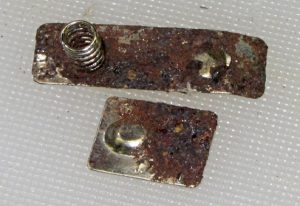 Source: sputtertargets.net
Source: sputtertargets.net
Salts such as fecl 3 and cucl 2 which tend to pit most other metals and alloys actually inhibit corrosion of titanium. Seawater and other chloride salt solutions. Titanium alloys like other metals are subject to corrosion in certain environments. In desalination plants titanium is used in heat exchangers where the temperature is usually kept around 130 c 8 while titanium is reported to be immune to generalized corrosion up to 260 c. Titanium is very reactive with oxygen and forms oxides instantaneously that are adherent and generally form a protective surface that may prevent or retard further corr.
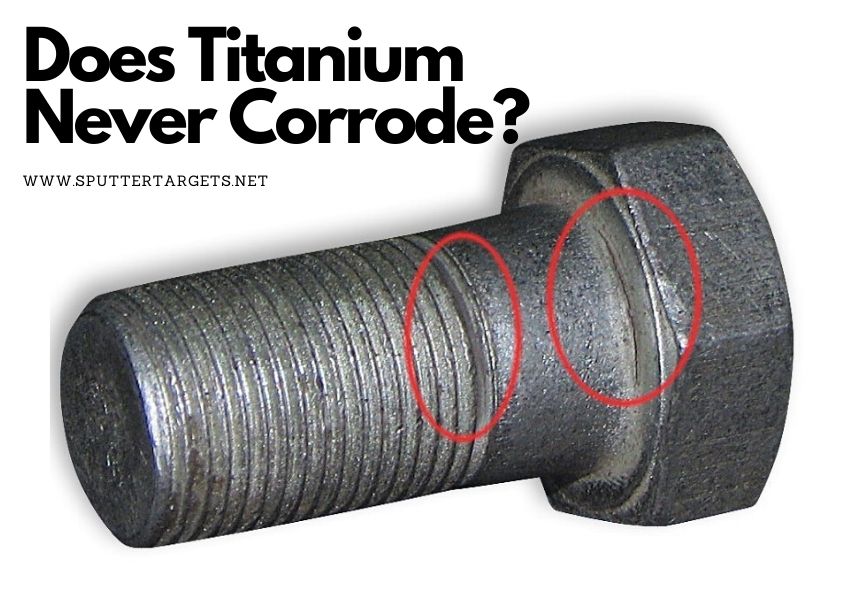 Source: sputtertargets.net
Source: sputtertargets.net
Saline environments coastal areas area exposed to de icing salt etc especially but also manufactur. Therefore titanium has excellent corrosion resistance in oxidizing and neutral media. Titanium has no pitting corrosion in most salt solutions but pitting corrosion is prone to occur in non aqueous solutions and boiling high concentration chloride solutions. Saline environments coastal areas area exposed to de icing salt etc especially but also manufactur. Seawater and other chloride salt solutions.
 Source: youtube.com
Source: youtube.com
Titanium has no pitting corrosion in most salt solutions but pitting corrosion is prone to occur in non aqueous solutions and boiling high concentration chloride solutions. Saline environments coastal areas area exposed to de icing salt etc especially but also manufactur. Titanium is not resistant to relatively pure sulfuric and hydrochloric acids but does a good job in many of these acids when they are. Some of these types include general galvanic and crevice corrosion as well as stress corrosion cracking anodic breakdown pitting and hydrogen embrittlement. The corrosion resistance of titanium is well documented.
If you find this site serviceableness, please support us by sharing this posts to your preference social media accounts like Facebook, Instagram and so on or you can also bookmark this blog page with the title does titanium corrode by using Ctrl + D for devices a laptop with a Windows operating system or Command + D for laptops with an Apple operating system. If you use a smartphone, you can also use the drawer menu of the browser you are using. Whether it’s a Windows, Mac, iOS or Android operating system, you will still be able to bookmark this website.





